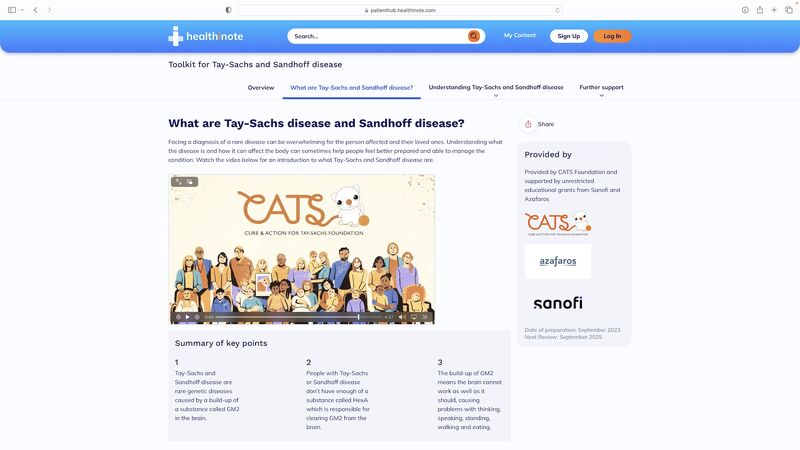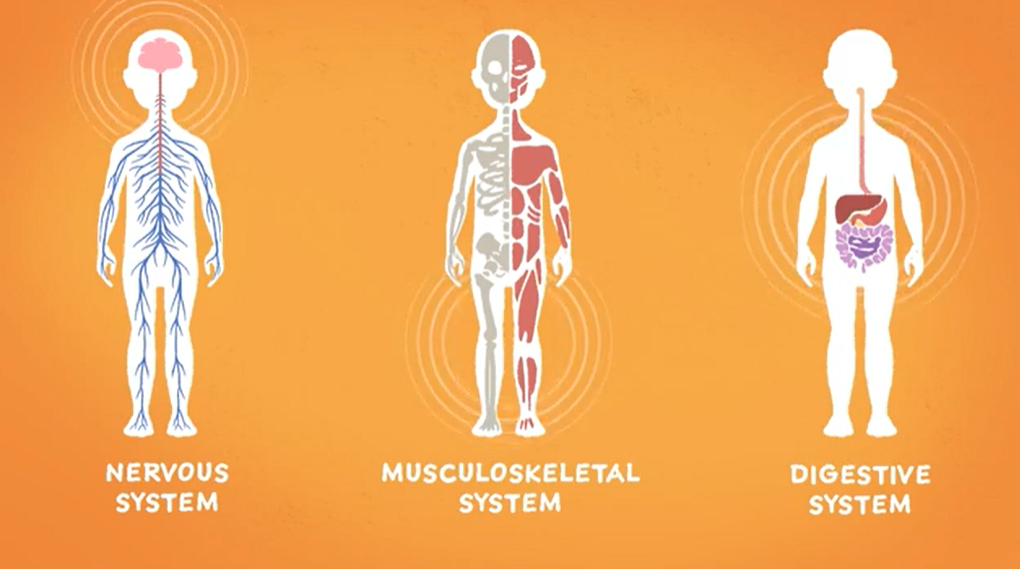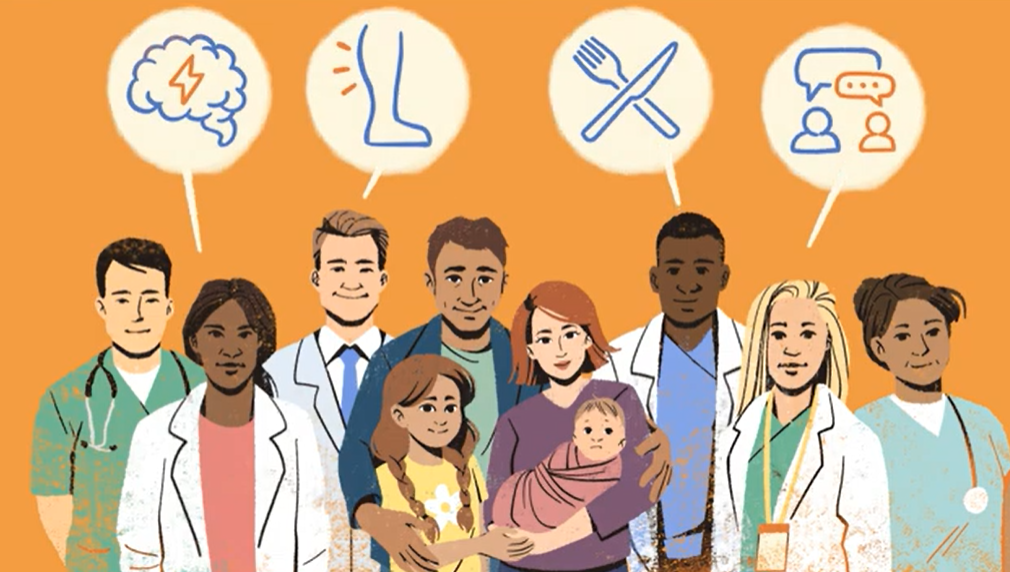
View the toolkit here
Background:
Tay-Sachs disease and Sandhoff disease are part of a group of rare, inherited diseases called GM2 gangliosidoses. They mainly affect infants and children; however, adolescents and adults can also develop them. These diseases cause damage to the nerves in the brain leading to progressive difficulties with speaking, moving and thinking. Unfortunately, there is currently no cure and Tay-Sachs disease and Sandhoff disease are life-limiting diseases. Understanding how these diseases impact the body can help people to manage them and provide adequate care and support for those affected.
The challenge:
Tay-Sachs disease and Sandhoff disease are rare conditions, affecting just 1 in 320,000 [1] and 1 in 300,000 people, respectively [2]. As with many rare diseases, there is still much that is unknown and there is a general lack of awareness surrounding them. This can make a diagnosis of Tay-Sachs or Sandhoff disease a worrying and isolating experience, further compounded by difficulty finding simple, reliable and accessible information.
In addition, the progressive nature of these diseases means that over time, more support and assistance is needed. This includes care from healthcare specialists such as dieticians, physiotherapists or occupational therapists, who may not be aware of the needs of people with Tay-Sachs or Sandhoff disease, or their caregivers. As a result, parents and caregivers are often responsible for bringing awareness of the condition to certain members of their healthcare team.
The solution:
The Cure and Action for Tay-Sachs (CATS) Foundation are a UK-based patient advocacy group committed to supporting people with Tay-Sachs and Sandhoff disease and their families. Cognitant supported the CATS Foundation by developing a unique online information resource called the Toolkit for Tay-Sachs and Sandhoff disease to support people following a diagnosis. The Toolkit provides information about the diseases and signposting to resources to help families navigate management of the diseases and find the support they need. It was designed to be easily shareable, enabling clinicians to directly send the resource to families, as well as also allowing families to spread awareness and understanding of these diseases amongst friends, family or other members of their healthcare team.

The approach:
Cognitant brought together key stakeholders, including clinicians, parents and caregivers, key opinion leaders and advocacy groups to determine the educational needs of people with Tay-Sachs and Sandhoff disease and their families. These groups were included in co-creation focus groups to collaboratively design an educational video to address these unmet educational needs. The video above, alongside other educational resources including an app and a children’s book for siblings, is embedded within the Toolkit for Tay-Sachs and Sandhoff disease.
The Toolkit is further composed of bespoke content suitable for both scientific and non-scientific audiences. It includes information in multiple formats to optimise understanding and retention. Topics covered include:
- What are Tay-Sachs and Sandhoff disease
- Diagnosis
- Signs and symptoms
- Living with Tay-Sachs and Sandhoff disease
- Clinical studies and research
- Further resources to support families
The Toolkit aims to empower those affected by Tay-Sachs or Sandhoff disease, including parents, caregivers and healthcare professionals by providing easy access to simple and reliable information and enhancing the routes of information sharing. The Toolkit is currently being piloted and is available for use from the Healthinote platform and is accessible via the CATS Foundation website. Feedback from users will be assessed to iteratively develop and improve the online information resource.




References:
- Cure & Action for Tay-Sachs Foundation. What is Tay-Sachs? Available at: https://cats-foundation.org/what-is-tay-sachs/. Accessed October 2023
- Cure & Action for Tay-Sachs Foundation. What is Sandhoff? Available at: https://cats-foundation.org/what-is-sandhoff/. Accessed October 2023
Cognitant
Looking to empower people with health information for better patient outcomes?
Additional Case Studies
Co-Creating a Personalised Digital Storybook for Children with Atypical Hemolytic Uremic Syndrome (aHUS)
June, 2025
Challenge Atypical Hemolytic Uremic Syndrome (aHUS) is a rare, life-threatening disease characterised by blood clots forming in small vessels, leading to kidney failure, anaemia, and...
Asthma Essentials
January, 2025
[embed]https://youtu.be/qmeiwjCr9Go[/embed] The challenge: Asthma remains a major health concern in the UK, affecting 5.4 million people, including 1.1 million children. Each year, the condition leads...
Cognitant successfully streamlines a top 10 pharma Patient Support Programme
July, 2024
A top 10 pharma company challenged Cognitant to optimise their Patient Support Programme (PSP) for an injectable medication, with the aim to streamline approvals, save...